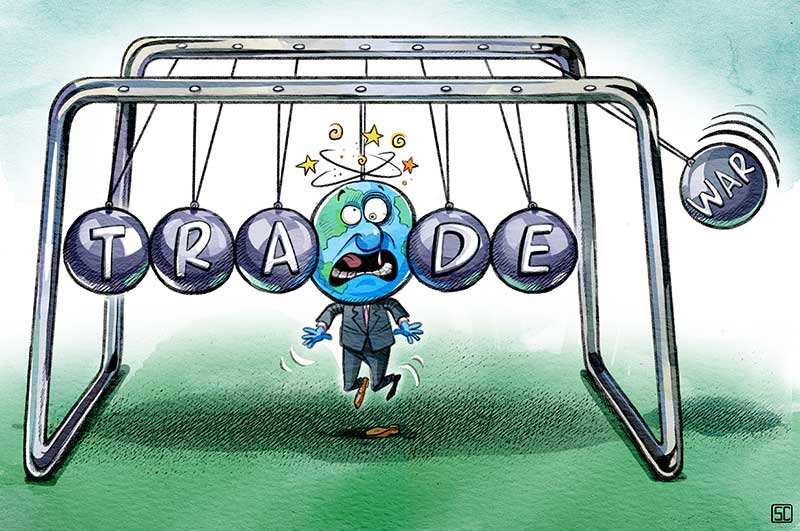US trade fuss will accelerate, not contain, high-tech in China


Currently, some enterprises from the United States, Germany, the United Kingdom and other countries and regions are engaged in projects on intelligent and green manufacturing related to Made in China 2025.
Regretfully, the Section 301 investigation deems the plan as a government-dominated scheme that aims to force foreign enterprises to transfer technologies to China by making it a compulsory precondition for foreign businesses to enter the Chinese market. The US style of distorted understanding of a normal national industrial development plan has turned it into a conspiracy to steal core foreign technologies. And the Section 301 investigation thus becomes a symbol of fairness and justice that defends the rightful interests of foreign enterprises.
China will undoubtedly not be distracted by the ill-minded noises and continue in its pace to carry out the Made in China 2025 plan step by step. The Section 301 investigation has also taught a lesson to China. As long as the government is in line with international conventions and rules and domestic laws, the government must strengthen its support to accelerate the development of high-tech and advanced manufacturing industries. These, as the US investigators have warned, constitute the foundation of the core competitiveness of a nation’s industry.
It is almost predictable that China will tilt more policy and funding support toward research and development of core technologies within the framework of World Trade Organization rules, just as many other countries do. The government will apply inclusive tax policies to support research and development in national and foreign enterprises in China.
The government should step up its efforts to enhance State-owned research and development platforms and labs, as well as information infrastructure facilities such as the industrial internet. Also education, research and training institutes should work at full steam to cultivate desperately needed talent for the drive.
The fuss initiated by the Section 301 will only expedite China’s realization of the Made in China 2025 plan, and provide an opportunity for foreign companies to know about the plan as well as the US government’s bias and sense of anxiety.
The author is a China Daily writer.




































